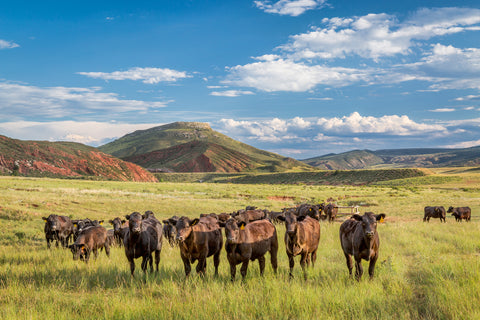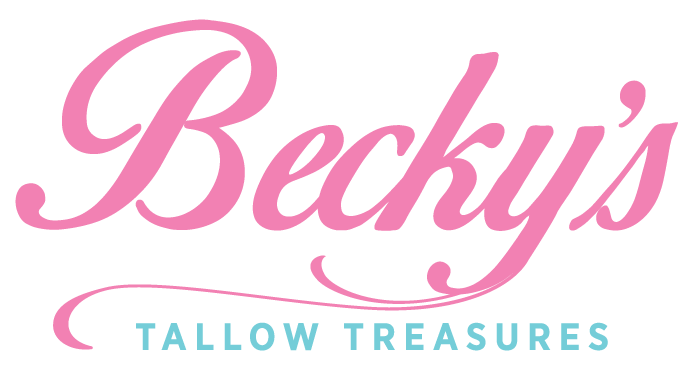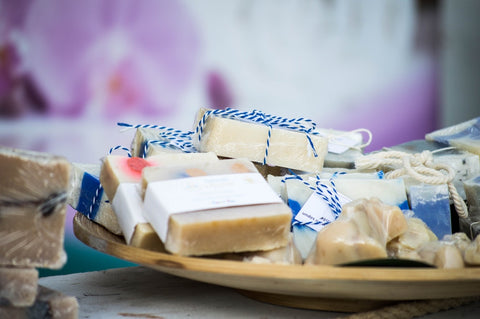Last month, I wrote about the deceptive marketing terms "fragrance free" and "all natural" as they're applied to beauty care products. I guess I'm on a roll, because whenever I see beef or dairy products promoted as "grass-fed", I roll my eyes. I came across the term on a menu last week and put the waiter on the spot. "Is that grass fed, or grass finished?"
And then I immediately thought about Colin the Chicken and "Portlandia's" spoof on sourcing sustainable food. And I felt bad (and just a little silly), because our server froze in his tracks, his eyes got big, and he stammered, "Uh... what?"
It wasn't the waiter's fault. He's just doing his job, and likely has no idea how cows are raised, or what finishing really means in the agriculture world. Neither do most consumers, and unscrupulous producers are taking advantage.
Ruminate on This: A Quick Guide on Cattle Management
All beef is, technically, "grass-fed". In most commercial operations, cattle spend the first eight to twelve months on pasture, eating grasses and forbs (small herbaceous flowering plants like clover and vetch) before spending another three to six months "finishing" on feedlots, where they're fed grains. The energy in grains speeds up the animal's growth so they can go to market (i.e. slaughter) faster, and managed feeding helps keep finishing times uniform so groups of like-sized animals can be shipped and processed at once.

In grass-finished operations, it can take at least a year longer for cattle to reach market size, depending on the quality of the pastures or range on which they're raised. Many ranchers, regardless of how they finish their livestock, consider themselves "grass farmers", because they put so much effort and care into cultivating a mix of grasses and legumes for optimal cattle—and soil—health. But cattle that are technically "grass-finished" spend their entire lives eating fresh forage or, in the case of drought or periods of necessary confinement, a high-quality grass or legume hay.
Isn't "corn-fed beef" a good thing?
Not long ago, "corn-fed beef" was the trend-driving marketing term, because the high-energy grain helped improve fat marbling that added flavor and tenderness to beef. Corn, due to commodity gluts, was a cheap food source. Now, agricultural scientists warn against health problems associated with grain and corn-heavy diets from a nutritional standpoint. Corn, wheat, and barley are essentially grass products, but cattle aren't built to eat concentrated amounts of grains.
Antibiotic use
Grass-finished cattle rarely needs antibiotics, since they usually don't live in confinement, and they don't eat food foreign to their natural diet. If an animal suffers an injury, the producer will treat therapeutically if it's allowed by their certification program. Industrial feedlot (grain-finished) beef are exposed to far more illnesses and injuries, and while any sort of off-farm processing requires transport and penning, feedlot animals tend to experience more stress than do pasture-finished cattle. All of these same issues apply to industrial-scale dairy operations: The more time the cows spend in confinement, the more at risk they are to disease, infection, and stress... and the more they require artificial inputs.
Legally, a "withdrawal" period is required between the administration of certain medications (especially antibiotics) and slaughter or milking time. But that doesn't mean everyone's compliant; too many livestock producers still give antibiotics to prevent illness or to promote weight gain and milk production, though this practice is now illegal due to the alarming issue of antibiotic-resistant disease in humans as well as livestock.
Medications can flush out of the bloodstream within a short period of time, but remain in an animal's tallow for much longer. And when an animal dies before that withdrawal period ends, its tallow can make it into the consumer market.
In all fairness...
I've seen commercial feedlots and dairies (many of which are small, family-run operations) that do a remarkable job responsibly caring for the animals in their charge, and I've seen grass-finished producers neglect their animals and the quality of their browse. That's why I develop relationships with the dairy and beef ranchers with whom I do business, and I share the specifics of their own management practices with my customers.
Certification Programs
I'm a fan of "little 'o'" organic, if only because the volumes of paperwork required to retain official certification can break the small producer. "My" farmers adhere to organic practices whether they're certified or not, and their small-scale operations allow them to surpass the quality of care most commercial Organic producers—who often hire compliance administrators just to keep with certification—can provide. Maisy the dairy cow has a scratch on her leg? Put a natural salve on it to prevent an infection that would require antibiotics. Want to reduce or eliminate vaccinations? Keep the animals on the farm, on rotated pastures, and out of feedlots, where they're exposed to illness from other cattle, crowded conditions, and improper feeding. Worried about the stress of shipping an animal to the local processor? Call a mobile processing unit to the farm, where the animal is dispatched five minutes after it's been munching on turnip tops.
As for "grass-finished" certification, well, the labels can be confusing, but the most-recognized certification is from the American Grassfed Association... which is actually all about producers who keep their animals on pasture their entire lives.
AGA defines grassfed animals as those that have eaten nothing but grass and forage from weaning to harvest, have not been raised in confinement, and have never been fed antibiotics or growth hormones. In addition, all AGA-Certified Producers are American family farms and their livestock is born and raised in the U.S. — American Grassfed Association
Their name doesn't do much to clear things up, does it? Maybe I should have gone a bit easier on that waiter, since I also use the term "grass-fed". That's the phrase most people associate with sustainable farming.
Aside from the AGA, the USDA offers their grass-fed certification program for "Small and Very Small (SVS) Producers", under which ranchers with fewer than 50 head of cattle can compete in the markets typically overshadowed by larger operations.
My Philosophy for Natural and Sustainable Skincare Products
What's important to me and (I know) to you is transparency and an understanding of the ingredients that go into my soaps, balms, and lotions. I even sell jars of tallow rendered from 100% organic, grass-finished beef, which you can use to create your own home-crafted products, or to add flavor to your favorite burgers or stir-fried veggies. And, of course, the dairy in my product recipes comes from cows raised under the same high standards.
I'm proud to be able to say my products come from grass-finished, truly "happy" cows, because they actually do. And I'm grateful for the small-scale producers who are able to stay in business because people like you care about how people like me source our ingredients.
Do you have any questions? Good! Feel free to contact me! I'm always happy to help, even if—like that waiter—I get stumped. Every day, I learn something new about why we shouldn't take labelling for granted, which is exactly why I founded Becky's Tallow Treasures.





How To Recover Your Bitcoin Without Falling Victim To Scams: A Testimony Experience With Capital Crypto Recover Services, Contact Telegram: @Capitalcryptorecover
Dear Everyone,
I would like to take a moment to share my positive experience with Capital Crypto Recover Services. Initially, I was unsure if it would be possible to recover my stolen bitcoins. However, with their expertise and professionalism, I was able to fully recover my funds. Unfortunately, many individuals fall victim to scams in the cryptocurrency space, especially those involving fraudulent investment platforms. However, I advise caution, as not all recovery services are legitimate. I personally lost $273,000 worth of Bitcoin from my Binance account due to a deceptive platform. If you have suffered a similar loss, you may be considering crypto recovery, The Capital Crypto Recover is the most knowledgeable and effective Capital Crypto Recovery Services assisted me in recovering my stolen funds within 24 hours, after getting access to my wallet. Their service was not only prompt but also highly professional and effective, and many recovery services may not be trustworthy. Therefore, I highly recommend Capital Crypto Recover to you. i do always research and see reviews about their service, For assistance finding your misplaced cryptocurrency, get in touch with them, They do their jobs quickly and excellently, Stay safe and vigilant in the crypto world. Contact: Recoverycapital@fastservice.com You can reach them via email at Capitalcryptorecover @ zohomail. com OR Call/Text Number +1 (336)390-6684 his contact website: https://recovercapital.wixsite.com/capital-crypto-rec-1